2020 Vision & The 21st Century: Looking Back To 2000 And On To 2040, A Gresham College Event Two Decades On
Wednesday, 20 May 2020By Michael Mainelli
"2020 Vision & The 21st Century: Looking Back To 2000 And On To 2040, A Gresham College Event Two Decades On" - event report on a webinar held on Wednesday, 20 May 2020 with Z/Yen, Long Finance & FS Club, and presentation slides.
A Danish saying runs, “It is difficult to make predictions, especially about the future”. Yet people continue to make such predictions, three year plans, five year plans, even twenty year plans.
In keeping with tradition, in 2000 Gresham College hosted a series of events on London in the 21st century looking ahead to 2020 as part of the Millennium celebrations. These events were followed by a 90-page report commissioned (with sponsorship) by the Worshipful Company of Information Technologists - see London In 2020: A View Of The Forces Shaping The Future Of London, And A Vision Of What We Would Like It To Be... Commentaries were sought from a range of organisations plus a focus group made up of individuals. Experts then provided longer reports in Section 3.

On 20 May 2020, Long Finance reviewed those predictions, examined mankind’s second-oldest profession of 'fortune sellers', and explored whether what we’ve learned over two decades might give us clearer vision into 2040. Not least, why hadn't people predicted that a follow-up session 20 years later would be held virtually. Along the way we elicited best modern practices in dealing with the future ranging from modelling to scenario planning to complexity analysis.
We are fortunate in that the team who drew up the original report could actually be brought together for this webinar, not only to look back at London over the past twenty years and to re-consider their own projections, but also to think about how London might develop out to 2040. The webinar is available on-line.
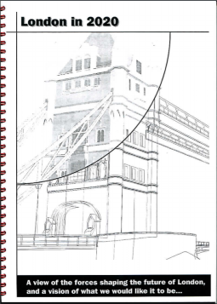
The event was chaired by Alderman & Sheriff Professor Michael Mainelli, Fellow of Gresham College and Executive Chairman of Z/Yen Group. The speakers were:
- Roger Camrass, CIONET UK
- Richard O’Brien, Economist
- Gill Ringland, Director of Ethical Reading
- Oliver Sparrow, Director of Challenge Network
- Chris Yapp, Independent Consultant
- Professor Richard Susskind, Professor Emeritus of Law at Gresham College
- John Carrington, former Chair of Council at Gresham College
- Professor Tim Connell, Fellow of Gresham College
Speakers were asked to consider:
- The most surprising thing over the past 20 years;
- The lesson I’d most apply for the next 20 years;
- My most confident statement about 2040.
Professor Michael Mainelli opened this event on 2020 hindsight, by pointing out how William A Sherden, in his hole-poking and excellent book, "The Fortune Sellers: The Big Business of Buying and Selling Predictions" (1999), repeatedly stressed the importance of comparing all predictions with a "naïve forecast", where the last period's actuals are used as this period's forecast, without adjusting them or attempting to establish causal factors. He then uses naïve forecasts to puncture the pomposity of economists, demographers, technology forecasters, weather forecasters, and many other professional members of "the second oldest profession". For example, Sherden developed 'rulercasting' to predict hurricane landfalls. He took a straight line over the locations of a hurricane over the past 24 hours and drew a line to the coast. For 28 hurricanes his forecast error of 121 miles was only 18% higher than the US National Hurricanes Centre's 103 miles. And they had lovely and complex weather forecasting theories and supercomputers. To be fair, this was some time ago, 1979 to 1996, but simple rulercasting provided a good basis for prediction comparing well against complex, and expensive, methods.
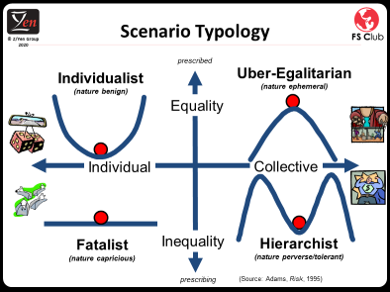
Mainelli also referenced his similar work on charity scenarios in 2000, Scenario Lotharios: Strategic Scenarios Of The 21st Century For The Voluntary Sector, Ian Harris and Michael Mainelli, later published by Gill Ringland in her book, Scenario Planning (2nd edition), John Wiley & Sons (2006) pages 439-444. During that work he observed that the 'map' of the universe of potential scenarios seemed to be scoped out in four stereotypes from which stories could be derived. John Adams, in his work on risk structure, and others, such as Geert Hofstede's work on culture, have analysed perceptions of risk & reward as ways of classifying views and cultures. Adams' first axis, the horizontal, divides people into those who look at collective risk versus those who look to themselves. His second axis, the vertical looks at those who see the world as one at the top where authority sets the rules, equally applied even if unfair, and the bottom where people make the rules themselves. The four resulting risk character types each view a different world. People exhibit different risk profiles at different times and in different situations. Organisations can also have different risk profiles within different functions, e.g. accounts versus fundraising, etc. Still, let's summarise these stereotypes:
- The Individualist is almost a parody of an 80's yuppie. Nature is benign - it won't hurt him or her. At the extreme, we could put quite a few fund-raisers into this category - for the right deal a bit of tobacco sponsorship may be a good thing, after all the money was going to go somewhere.
- The Uber-egalitarian is almost a parody of a 60's or 70's socially-conscious individual - the Good Life. Nature is ephemeral, about to be overwhelmed at any minute, twenty years ago it was the coming Ice Age, today it's global warming. The uber-egalitarian mode is the working mode of many advocacy activists;
- The Hierarchist sees nature as something to be overcome, but manageable. The hierarchist is a natural bureaucrat and loves decisions based on sound thinking, however irrational the result. He or she is most likely to be the only one of the four character types who would value cost/benefit analysis;
- The Fatalist sees nature as capricious; it'll all come back and bite 'em. This position is more intriguing than it first appears. It is, after all, how most of us react to the vast majority of decisions we face every day, including things like not contesting an invalid parking ticket (you'll never win) or not changing our mortgage (they're all the same in the end).
Risk profile stereotyping is a crude tool. Individuals inhabit different positions at different times in different circumstances for different decisions. One might be a fatalist about comet disasters, an individualist about one's children's education, a hierarchist about corporate rules and an uber-egalitarian about corporate pollution. Nevertheless, much scenario planning recapitulates these four world views.
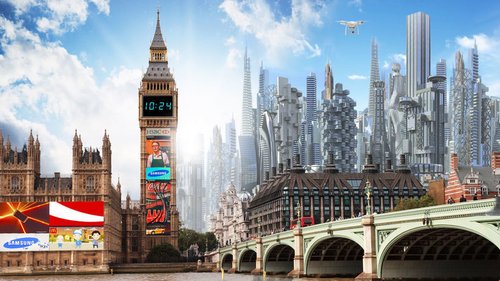
Turning to the "London In 2020" report, a summary helps to sketch out the starting point for the webinar discussion:
A) Summary: London in 2020
- London to become one of the top three cities in the world; a leading brand; a 24-hour City.
- The “integrated infrastructure” allows for excellence in information exchange, entertainment, shopping and education.
- Multi-cultural, so attractive to people from all over the world.
- A leader in financial services, but with other more universal strengths.
- An integrated physical and electronic network.
- Difference and diversity recognised and enjoyed.
- “Gridlock and pollution are now distant memories” [!]
- New methods of travel and ways of working.
- English pivotal in both business and entertainment.
- Flexible educational provision. The role of cultural industries.
- Intelligent re-use of Victorian spaces and old buildings.
- Technology pervasive but not invasive.
- Technology the key enabler, not an end in itself.
- London therefore “vibrant, diverse, colourful and durable”.
- Traditional villages without the old constraints.
B) The report suggested the following:
a) Trends foreseen by 2020
- “Pervasive availability of information.”
- Diversity and development of new communities.
- New ways of doing business.
- New methods of entertainment.
b) Assumptions
- Liberalisation of international trade
- More privatisation of state industries outside the UK
- Globalisation
- Dominance of technology
c) Discussion of the whole idea
- Future decay not included.
- Not suggesting how goals might be achieved.
- Not offering a plan for 2020. A catalyst for discussion and debate.
d) Financial Services
- London still a world centre, by packaging new products, while only New York and Los Angeles then seen as rival centres.
- Less processing because of globalisation.
e) Family and Community
- Family structure goes beyond the nuclear model.
- Creches the norm, paternity leave encouraged.
- Teleworking makes home working easier.
- Growth of community, with growth in local decision-making.
- Importance of “local” internet links, with digital voting and LLL.
- A wider definition of “community”.
C) The report then focused on a series of particular headings:
a) Leisure and Work
- Domains: work, domestic, mobile and public.
- Work-life balance.
- 24-hour shopping, but Sundays now more for leisure.
- Access to parks and countryside and London has a café culture.
- London a centre for film and culture.
- The quality of TV has improved dramatically. [!]
- Older people have more time and so offer to help others.
b) Lifelong Learning (LLL)
- Community electronic networks.
- Formal educational structures “turned upside down”. [!]
- Universities more flexible. Virtual universities more prevalent.
c) The Environment
- A pleasant environment – more parks and green spaces.
- Use of brownfield sites.
- Noise pollution brought under control by sound-absorbing materials.
- Air pollution controlled by cleaner vehicles and better public transport.
- Museums etc. free. More temples. Modern buildings used for different purposes – hot desking.
d) Transport
- 24-hour transport – with free passes for London taxpayers.
- Multi-purpose vehicles to reduce need for cars.
- More suburban-based offices. De-centralisation.[!]
- A new hi-tech light railway system, linking suburbs without going through the centre.
- e-commerce has reduced the need for couriers, but fast food deliveries still popular.
- Smart taxes to reduce car use (and taxes used for road improvement…).
- More efficiency via use of satellites.
e) Shopping
- Electronic shopping more common.
- Supermarkets as one-stop shops with surgeries and eating places.
- Central London shops offer a wider experience: specialist shops more than department stores.
- Technology allows for customised purchasing.
- People still like markets.
- London part of the global village – people will pop over to New York for a bit of shopping…
D) Discussion: London and the world from 2000 to 2040
A key issue has been the digital revolution and the move towards hyper connectivity, albeit via the growth of a small number of cloud platforms and digital giants. Positive developments such as social media, the i-phone and new supply chains have been offset by new phenomena such as the dark web, cyber attacks and the prevalence of viruses. The next twenty years will see the growth of smart systems at home and in the workplace. Data will be of key importance, though an element of diplomacy will have to be implemented in order to reduce the possibility of conflict.London continues to be a major final centre, although the NASDAQ crash, 9/11 and the 2008 crisis are indicative of the fact that there are many things that are either totally unexpected or simply not planned for. The development of inequality in both social and economic contexts was noted with concern and whether the present structures of society could be sustainable as a result.

Population change itself was a key factor both looking back and looking forward, though it is a moot point as to whether the population can stabilise at 8.5 billion. Age will be a factor as will a possible surplus of males in the population by 2040 besides the lack of employment possibilities, especially in countries with a preponderance of young people under the age of twenty-five. Life expectancy worldwide however may be affected by pandemics and emergencies arising from food, water and energy security, with global warming a possible element in exacerbating all these.
Urbanisation will be a driving force, with the bulk of the world’s population living in cities by 2040. In the case of London, the elements that make London more a series of villages than one conurbation will be strengthened, with people living in high rise accommodation whilst ironically being involved increasingly in cottage industries and culture as automation radically changes the workplace. Ironically, this may mean that the livery companies of the City of London may find a new lease of life. Not only the new companies like the World Traders or Information Technologist will have a role to play, but the traditional companies will be able to adapt to the changes around them. The Worshipful Company of Fanmakers, for example, have already moved their focus from fans for ladies to blades for turbine engines in aerospace and energy. The projected tube map for London in 2040 gives some indication of this (see https://londonist.com/london/transport/is-this-what-the-tube-map-could-look-like-in-2040).
There are already over 1000 cities worldwide with populations in excess of five million, plus the megacities like Mumbai, Beijing, Shanghai, Sao Paulo, Tokoy, and Mexico City. Competition may well be more between major cities than nation states, with the competent gaining advantage of the marginal ones.
Roger Camrass
Birth of the digital age – 2000
Living through the year 2000 was a white rapid ride as large organisations and individual entrepreneurs participated in the dot.com boom. As leader of e-commerce at EY I had a queue of clients at my office door desperate to capitalise on a ‘once in a lifetime’ opportunity to transform business and create new wealth. Included here were both winners and losers such as Amazon and Webvan. Everybody talked about ‘Internet speed’ as billions of dollars cascaded from corporate wallets and VC purses.
As the CEO of BP stated ‘It’s not about picking the horse, it's all about picking the race’
But with 9/11 and the Nasdaq crash of 2001 most executives breathed a heavy sigh of relief and got back to ‘business as usual’. The subsequent financial crash of 2008 sustained the corporate lethargy, focusing attention on cost and efficiency rather than innovation and growth. At the same time, a handful of start-ups (Facebook, Amazon, Netflix, Google, or FANG) began to make their presence felt as social media, smart phones and cloud took off. This was a quiet revolution that laid the seeds for the next stage of digital developments.
Early signs of maturity – age of hyper-connectivity: 2020
By 2019 ubiquity of broadband connections and fourth generation mobile networks around the globe heralded in a new era of ‘hyper-connectivity’ with some two billion people accessing mail, social media, and web sites daily. By then some 20% of consumer transactions had migrated to online channels. Digital leaders (The FANG group) represented 25% of S&P market value and continued to expand revenues in double digits. Elsewhere ‘analogue’ businesses were barely able to keep pace with inflation, and productivity in western economies flatlined.

The covid-19 pandemic in early 2020 accelerated the move to digital as it sent billions of office workers to their homes and restricted families to online rather than physical shopping. Fortunately, the investment in global cloud platforms such as AZURE, Google Cloud and AWS enabled a relatively smooth transition to take place. But the divergence between incumbents and digital leader stock market values continued to widen. The former witnessing sharp declines of 20-30% and the latter enjoying increases of similar amounts since January 2020.
This divergence has profound implications. Investment is attracted by healthy returns. The prospect for large incumbents is ever gloomier as they become starved of investment capital and dividends begin to dry up. In contrast, the digital leaders can continue to fuel their double digit growth through access to ‘cheap money’.
Near horizons – Hyper-personalisation and smart everything
By 2040 the global population stabilises at around 8.5 Billion, with nearly three billion living in Africa. The ‘middle classes’ reach 3-4 Billion, and emerging economies represent two thirds of global GDP, compared to 40% today. 80% of the global population lives in just 1,000 cities. The first trillionaire emerges, and the divide between rich and poor grows ever wider. All these factors present high levels of political, social, and economic uncertainty.
To meet some of these challenges a second wave of digital technologies such as Internet of Things (IoT), Artificial Intelligence (AI), Machine Learning, 3D printing, Blockchain and 5G enters full scale adoption. This will set the scene for entirely new applications and a dramatic shift towards hyper-personalisation amongst the global community. Here are some predictions for this period:
- Smart ‘everything’ enabled by IoT and 5G will encompass wearables, connected homes and cities. Every aspect of our lives will be recorded, catalogued, and stored. Economic value will be all about the data that we generate and monetise.
- 50% of city centre office accommodation will be converted into co-living space. Large buildings become self-contained, high tech villages with shared workspace, retail, and well-being centres. Cities become self-sufficient for food, water, and energy.
- Western populations turn their hands to ‘arts and crafts’ enabled by 3D printing and automation. Such ‘cottage industries’ begin to dominate global economies and the ancient guilds of the City of London become the digital hubs for such new industries
- The City of London regains its international status by promoting a digital brand that attracts inflows of talent, money, and intellectual property. Education continues to be a growth activity, much of which is now conducted virtually across the Globe.
Polarity between rich and poor continues to haunt western democracy. But emerging trillionaires follow Bill Gate’s example and invest their vast fortunes in solving world problems, leaving nation states behind in the shadows.
Planning for a digital future
The landscape for 2030 and 2040 will be different from today. But predictions about the future have never been more difficult as large uncertainties manifest themselves such as:
- The economic and social legacy of covid-19 amounting to trillions of dollars of debt that could take a generation to pay off
- Growing tensions between China and the West with likely impact on global trade and sharing of intellectual property
- The effects of climate change on the global economy and the prospect of coastal erosion and flooding of major cities including London
- Possible economic apartheid where the competent are boosted by automation and advanced medications, and the less competent who are increasingly marginalised
Most organisations today undertake strategic planning as a once-a-year exercise. These plans are rarely executed, as historic assumptions persist around business-as-usual plus 3%. Post covid-19 this is unlikely to hold true. Instead Boards must learn to explore new scenarios and experiment with new business models. The status quo is dead.
Scenario planning is an effective tool for examining the broad envelop of future possibilities in which different options can be generated and tested. But the most compelling approach will be to adopt an agile approach that enables quarterly reviews and adjustments, backed up by a twenty-year vision.
Roger Camrass is a director of CIONET, Europe’s largest community of Digital Leaders, and a visiting professor at the University of Surrey. Visit www.rogercamrass.com for more information and publications.
Richard O'Brien commented:
The most surprising thing for me over the past 20 years
- How quickly inequality became not just a problem but also a driver of change
- The explosion of myopic greed and insensitivity to grotesque inequality shown by the world of finance has been shocking
The lesson I’d most apply for the next 20 years
- The inconvenient truth is that life for human beings will change radically, quite quickly
- For some issues we’ve missed the opportunity to pick and choose our preferred destiny
- That sounds a bit apocalyptic, but I do mean radical change is essential, including...
How we distribute/share resources and opportunities, and ... How we live
The changes will be driven by:
1.The environmental challenge: the end of use of fossil fuels, a drastic reduction in the use of energy, less travel and trade and new methods of production
2.Using our new knowledge and technologies to address those challenges
3.New social distribution models: I always wondered how the inequalities across the world and within our own society could carry on without falling apart
I think it may well fall apart : Haves into Have Nots
Idealistic or not, it’s a real challenge

- “The failure of “communism” says all the above is idealistic thinking - a reaction which is reinforced when the anti austerity message comes from the Corbyn/McDonnell corner
- Our society is and feels very fragile
- We must address these challenges outside our outdated mind-sets
- Liberals face the reality that all we once held dear just won’t work anymore
My most confident statement for 2040
- Tinkering with existing models won’t work
- We may depend on shocks like Covid, climate change, mass migration, to force change
For my generation averting the apocalypse was about nuclear war. The new challenges are far less controllable
- New technologies incl. ways of communicating and working across geographies offer reasons for hope
- Our hitherto inability to act before it is too late gives cause for despair
Can we learn? We must
- I hope we learn from the COVID shock and not go back to attempted business as usual. Our reaction to the banking crash doesn’t offer a good precedent
- Perhaps, just as seeing the world as a globe from outer space is said to have changed our perspective, so seeing the virtual elimination of pollution in images over urban China and Italy under lockdown offers a vision of the possible
- Deniers will say that the lockdown shows we can’t afford to do less
We don’t have a choice
In summary - Life is going to change radically, quite quickly
We’ve missed many opportunities to pick and choose
Requires radical change in How we share resources and opportunities and in How we live.
DRIVERS
- The environmental challenge
- Use of new knowledge and technologies
- New social distribution models
Address these challenges outside outdated mind-sets.
Tinkering around with existing models isn’t going to work
We may depend on shocks like Covid, climate change, mass migration, to force change. We’ve glimpsed the possible.
We don’t have a choice.
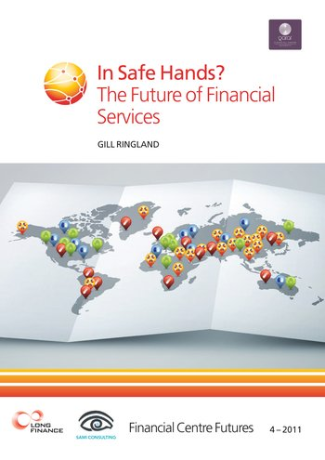
Gill Ringland has published three recent Pamphleteer articles on London's future post-covid-19:
- The Impact Of Covid-19 On “A Tale Of Two Middle Classes” (11 May 2020)
- How Covid-19 Affects The Future Of London (18 May 2020)
- In Safe Hands? The Future Of Financial Services Revisited (28 May 2020).
In addition, the webinar mentioned her 2011 report In Safe Hands? The Future Of Financial Services.
Chris Yapp is a frequent, and popular, Pamphleteer, who covered many of his points in his articles:
- After The Crisis: Restarting The Economy (6 May 2020)
- Post-Covid-19 Crisis: Making Up The Differences (6 April 2020)
- The Limits Of Comparative Advantage & Dead Economists (27 March 2020)
- Where Does The Buck Stop Now? (28 October 2018)
- Be Careful What You Wish For! (29 January 2018)
- Brexit At Tiffany's (3 January 2018)
- In Praise Of Higher Taxes? (21 December 2017)
- Where Next For Trade? (31 July 2017)
- Misreading Change (20 January 2017)
- Funding The Housing Targets (5 October 2016)
- The Impact Of Shocks (1 July 2016)
- Fintech And Unintended Consequences (16 May 2016)
- A Transparency Tax? (11 April 2016)
- The Future Of Cash? (22 February 2016)
- The Price of Insight (4 November 2015)
- The Price Of Regulation (28 September 2015)
- The Price Of Milk (1 September 2015)
- The Price of Free (16 June 2015)
- State Capitalism (14 January 2015)
- Too Big To Manage (4 November 2014)
- Pension Reform and Financial Innovation (9 September 2014)
- Product Safety And Financial Services (31 July 2014)
- Climate Change And Insurance (17 April 2014)
- Elephants And Butterflies (16 January 2014)
- How Many Currencies? (10 December 2013)
- When Is A Bubble Not A Bubble? (3 September 2013)
- The Next Golden Age (21 June 2013)
- Is Competition Delivering? (24 April 2013)
- George Soros And The Dog That Didn’t Bark (7 February 2013)
- A New Year’s Thought Experiment (16 January 2013)
- Infrastructure And Ownership (27 November 2012)
- Tax Avoidance And Unintended Consequences (15 October 2012)
- Big Data And City Regulation (5 September 2012)
- The Eurozone: What Is Really At Risk? (23 May 2012)
- Responsible Capitalism (24 April 2012)

Further change in society will be driven by the increasing gap between the haves and have-nots, and the consequences of the old rich world losing momentum and hence its monopoly in everything from international politics to industrial production and world trade.
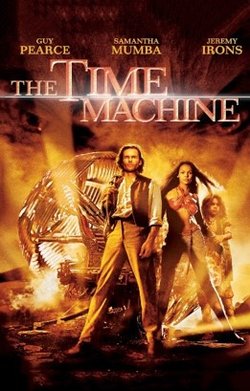
Future challenges must include the environment and climate change, with particular concern expressed about the rising of sea levels, it being noted that the Thames Barrier has been raised in the last year more than ever before. The fear of pandemics, mass movements of population and unexpected events such as covid-19 was clearly expressed, with the more positive proviso that such changes might in turn lead to major structural changes in modern working life. One world (as seen from space) was viewed as an object for hope – if any such changes actually take place.
The pace of globalisation and population movement in the last twenty years was noted, although discussion did not tend towards the question of democracy versus autocracy or authoritarianism in its different forms. The move of world focus towards the Far East was mentioned, although London as ever seems to come out relatively unscathed.
In his summing up, John Carrington (who was involved in the production of the original report) was pleasantly surprised by how accurate the predictions had been, particularly with London emerging as a 24-hour global city with IT as a pervasive element in all aspects of modern life. Technology is likely to become more personalised, quite possibly more international as it maintains its position as a global trading hub, with the City of London more of a campus for people to meet and exchange ideas rather than a place of daily work.

Professor Tim Connell is another contributor to Pamphleteers:
- Pantomime In A Cross-Cultural World (15 December 2016)
- The Politics Of Christmas Cards (1 December 2015)
- The Great Biscuit Hierarchy (18 December 2014)
Tim had the unenviable task of concluding a wide-ranging discussion. He noted that both Utopia and Dystopia have a lengthy history in literature going back to Gilgamesh and quite possibly before. Science Fiction has had a role to play in the last century trying to project forward into the future, via authors as diverse as HG Wells, Rudyard Kipling and John Wyndham (not to mention Ray Bradbury, Isaac Asimov and Neal Stephenson). Some verge on the fanciful whereas others are strangely prescient. The key thing is the difference between predictions, projections, and forward planning, though we should all be aware (in the words of Donald Rumsfeld):
“As we know, there are known knowns; there are things we know we know. We also know there are known unknowns; that is to say we know there are some things we do not know. But there are also unknown unknowns—the ones we don't know we don't know.
As Professor Mainelli couldn't resist quipping while thanking the panellists and participants, "The past, present, and future walk into a bar. It was tense." Perhaps this Yiddish proverb is the most enduring advice, “If you want to make God laugh, tell Him your plans”.
Speakers:
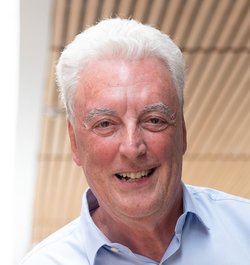
Roger Camrass is a visiting professor at the University of Surrey and co-founder and director of CIONET UK – belonging to a global community of 9,000 digital leaders across 22 countries (see www.cionet.com). He was a pioneer of today’s Internet whilst attending MIT in the seventies as an ARPA Research Fellow. Subsequently he has spent over forty years helping large organisations take advantage of progressive waves of technology, from speech recognition and cloud, to 5G and AI. In the nineties he led a global research programme, ‘Business in the Third Millennium’ along with Gill Ringland and Chris Yapp. Beyond this programme he was responsible for e-commerce at EY during the dotcom boom, and helped digital leaders such as Amazon scale-up. Today he runs an Innovation programme in the UK involving some thirty leading organisations such as BP, GSK, Unilever, MoD and FCA. Roger graduated from Cambridge University and received a Masters degree from MIT. He is author of the Book ‘Atomic: reforming the business landscape into the new structures of tomorrow’. For further details visit www.rogercamrass.com
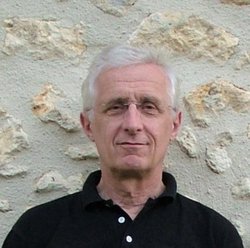
Richard O’Brien is an economist and futurist turned singer/songwriter and historian. During his time “in the future” he was a member of Global Business Network and a founding partner of Outsights Ltd, the scenario planning company, working with more than 100 public, private and charitable organisations. Notable projects included the scenarios for the Future of Obesity (UK), for The Future of the International Environment (2010-2020) and the creation of the UK Government’s first online database of future trends, The SigmaScan. Whilst Chief Economist of American Express Bank, Richard wrote one of the “iconic” books on globalisation, “The End of Geography”, for the Royal Institute for International Affairs, Chatham House, edited more than a dozen other volumes on international finance, and was Editor of the monthly publication The AMEX Bank Review. He also enjoyed serving on numerous councils and advisory boards. He continues as a member of the Advisory Board of The Annual Register, the world’s longest running review of world events, now in its 261st year. In recent years he has released six albums of his songs, on life, love and contemporary issues, www.richardrhysobrien.com , whilst his historical work currently focuses on the lives of Lady Rhondda, www.thedinnerpuzzle.com , and of Dame Margaret Lloyd George.
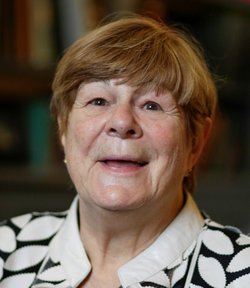
Gill Ringland is now a Director of Ethical Reading, set up to energise an ethical business climate in the Thames Valley. She was head of strategy at ICL (now part of Fujitsu) and is an Emeritus Fellow of SAMI Consulting. She is a Fellow of the British Computer Society, and of the World Academy of Arts and Sciences. She has been co-opted onto EC and British government advisory bodies covering IT, Economic and Social Research, and Foresight. She has worked in Europe, Mexico, Malaysia, Japan and the USA. She is the author or co-author of eight books and numerous articles. The most recent book is Megatrends and How to Survive Them: preparing for 2032; the next book explores post-pandemic futures. She was the author and editor of the In Safe Hands report with Z/Yen in 2012 and the London 2020 report by Gresham College and the Worshipful Company of Information Technologists in 2000.
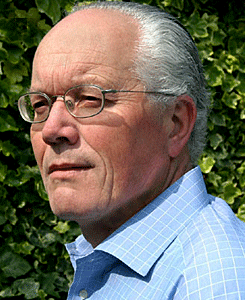
Oliver Sparrow is the Director of the Challenge Network. He is the author of many publications, including seven books. He has written or edited much of this Forum. He is known for his ground breaking presentations, which are given to audiences totaling well over ten thousand people in the course of a year. He has substantial broadcast experience. Oliver is a director, board advisor or non-executive director of a number of companies. He is also director of a charity called the Leadership Capacity Trust. He has been elected an Honorary Fellow of the Strategic Planning Society. He is a fellow of the Peter Drucker foundation. He has served as a member of number of UK government projects. He was a commissioner on the World Commission on Globalization. Oliver spent the bulk of his career in Shell, chiefly in strategic planning, corporate renewal, public affairs and venture capital. After Shell, he spent five years as a Director at the Royal Institute for International Affairs, also known as Chatham House. Country assessments - their stability, their weaknesses and potential, negotiation around conflict - were and remain a central skill.
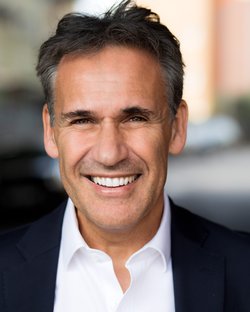
Professor Richard Susskind OBE was Gresham Professor of Law (2001-2004) and Honorary Professor of Gresham College (2005). His main field of theoretical and practical interest is the impact of technology (especially the internet and AI) on professional services. He is the world’s most cited author on the future of legal services. Richard is President of the Society for Computers and Law, Chair of the Advisory Board of the Oxford Internet Institute, and Technology Adviser to the Lord Chief Justice of England and Wales. His work has been translated into 15 languages and he has been invited to speak in over 60 countries. He has written ten books, including The Future of the Law (1996), The End of Lawyers? (2008), The Future of the Professions (2015, with D Susskind), Tomorrow’s Lawyers (2013, 2017), and Online Courts and the Future of Justice (2019). In 1995, under the auspices of the Worshipful Company of Information Technologists, he was co-editor of ‘Focus on IT in the City’, a collection of papers on the future impact of technology on the City. Richard is a Fellow of the Royal Society of Edinburgh and of the British Computer Society. In the 1980s, he wrote his doctorate on artificial intelligence and the law at Balliol College, Oxford. He holds professorships at Oxford University, UCL, Gresham College, and Strathclyde University. He is an Honorary Bencher at Gray’s Inn, he was awarded an OBE in 2000.

Chris Yapp is an independent Consultant after 30 years in the Computing Industry working in public, private and third sectors. He has had a long interest in both the theory and practice of Innovation and Futures Thinking. He is a Clan Member of the International Futures Forum. For 10 years he ran the British Computer Society Blog on the Impact of Technology Developments. He has written, edited and contributed to a number of books on these topics. His speaking engagements have included the British Council, EU, UN, World Bank, Royal Society and the Club of Rome. He is a Fellow of the BCS and the RSA.
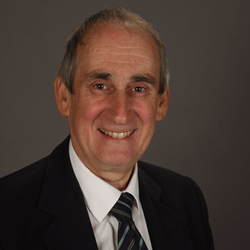
Professor Tim Connell is Professor Emeritus at City, University of London, having been head of languages there for nearly twenty years. He is deputy chair of the international course board of ESCP Europe, the French grande école which has centres in Paris, London, Berlin, Madrid, Turin and Warsaw. He is also a visiting professor at Richmond International University. He is a graduate of Oxford, Liverpool, City and London universities. His particular languages are Spanish, French and Portuguese and he has extensive experience of both Spain and Latin America. He attends meetings of the All Parties Parliamentary Languages Group. As a Fellow of Gresham College he sits on the Academic Board. He is also Chair of the Gresham Society, which aims to support the work of the College. He maintains close links in the Square Mile as a Liveryman of the Stationers’ and Newspaper Makers’ Company.. He also writes and speaks on topics relating to the history of the City of London. Most recently he has produced a report on past lessons for future finance in the Long Finance Series, and has written the official history of Canning House, the Luso-Hispanic Brazilian Council.
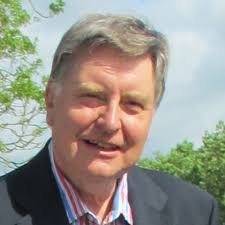
John Carrington attended the LSE, Edinburgh University and the LBS. He played a key role in the development of cellular communications in the UK and Europe. John was the founding CEO of Cellnet – now O2. He was an initial signatory of the 1987 agreement that established the GSM digital international cellular standard. John, now retired from industry, was Chair of the Council of Gresham College 2014 – 2019. John was a founder member of the Information Technologists Company, where he was Master 2001/2002.
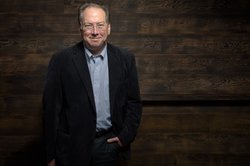
Professor Michael Mainelli FCCA FCSI (Hon) FBCS, Executive Chairman, Z/Yen Group, is a qualified accountant, securities professional, computer specialist, and management consultant, educated at Harvard University and Trinity College Dublin. Michael gained his PhD at the London School of Economics where he was also a Visiting Professor of Innovation & IT. His career spans aerospace & cartography science, accountancy-firm partner, and director of Ministry of Defence research. Michael founded and chairs Z/Yen, the City of London’s leading commercial think-tank, famous for instrumental factor indices, including the Global Financial Centres Index, Global Green Finance Index, and Smart Centres Index. Michael has helped found numerous technology and financial firms and over the years his clients have included virtually all major investment banks, as well as many exchanges, insurers, fund managers, regulators, and financial information providers. Michael is Emeritus Professor, Fellow, & Trustee at Gresham College where he created the London Finance initiative asking “when would we know our financial system is working?” He is non-executive director of the United Kingdom Accreditation Service, Fellow of Goodenough College, Trustee of Morden College, and Alderman for Broad Street. Michael is past Master of the World Traders and a liveryman of the Furniture Makers, Water Conservators, and Marketors, as well as a Craft-Owning Freeman of the Watermen & Lightermen. His third book, The Price of Fish: A New Approach to Wicked Economics and Better Decisions, won the Independent Publisher Book Awards Finance, Investment & Economics Gold Prize. His interests include skiing, woodcarving, glassblowing, bagpipes, racing sailboats and sailing Thames barges. Michael has the honour of being Sheriff of the City of London 2019-2020. Relevant to this event, Michael is a former Vice-Chairman of the Strategic Planning Society.
[The opening image and the inhabited Gherkin image are from the fantastic "Postcards From The Future" project - Long Finance's London Accord proudly supported a wonderful 2010 and 2011 exhibition at the Museum of London for this thought-provoking initiative.]